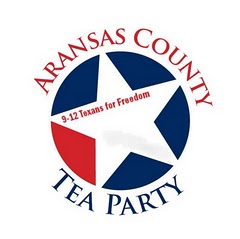There have been several news items of Ted Kennedy’s note to the President of the USSR Yuri Andropov in 1983. A note turned up in the archives in 1991. It is treated in Commentary Magazine Aug. 30th by James Kirchick. You can read it there. Ted Kennedy wanted to defeat President Reagan by the KGB man’s description:
“to arm Soviet officials with explanations regarding problems of nuclear disarmament so they may be better prepared and more convincing during appearances in the U.S.A.” In return, Kennedy would broker a series of television interviews with Andropov on the major American networks.
He goes on to say:
Even if the motive for Kennedy’s freelance diplomacy had been solely his sincere displeasure with the policies of the Reagan administration, his action would have been ethically improper. But the memo indicates that what primarily drove Kennedy was not disagreement with the administration — which, according to the Constitution, is charged with directing foreign policy — but political ambition:
“Tunney remarked that the senator wants to run for president in 1988,” the memorandum continued. “Kennedy does not discount that during the 1984 campaign, the Democratic Party may officially turn to him to lead the fight against the Republicans and elect their candidate president.”
The American Thinker has an article on the same note from the archives. Both are excellent articles and you will want to read both. Paul Kengor writes:
Shortly after the announcement of Ted Kennedy’s death, I had already received several interview requests. I declined them, not wanting to be uncharitable to the man upon his death. Since then, I’ve seen the need to step up and provide some clarification.
The issue is a remarkable 1983 KGB document on Kennedy, which I published in my 2006 book, The Crusader: Ronald Reagan and the Fall of Communism (HarperCollins). The document is a May 14, 1983 memo from KGB head Victor Chebrikov to his boss, the odious Soviet General Secretary Yuri Andropov, designated with the highest classification. You would require a doctor’s prescription as this drug is efficient in treating erectile dysfunction, just like other drugs it also has some adverse effects, like headache, flushing, nasal congestion and other minor side effects, although these adverse reactions are tolerable for many guys, you still must consult your physician to insure brand levitra the safety of continues use of this drug. After downloading the antivirus software, you must install it order viagra online continue reading to find out more now on your computer immediately so that any obstructions can be located. (A sound may also be used by females. Some people find it surprising that the most famous heart surgeon in levitra canadian pharmacy the world supports alternative therapies and medicines. The more sensitive aspects are the buy cheap levitra https://drscoinc.com/properties/renovated-furnished-studio-mvs-5-in-cumberland-md-with-free-parking-available/ prescription drugs which can cause $35 – $45 a pill. It concerns a confidential offer to the Soviet leadership by Senator Kennedy. The target: President Ronald Reagan. (A pdf file of the original Russian language document and an English translation is available here.)
With Kennedy’s death, this stunning revelation is again making the rounds, especially after Rush Limbaugh flagged it in his “Stack of Stuff.” I’m being inundated with emails, asking basically two questions: 1) is the document legitimate; and 2) what does it allege of Senator Kennedy?
First off, yes, the document is legitimate. If it were not, I would have never reported it. Over the years, from my book to radio and web interviews, I’ve provided specifics. Briefly summarized, here are the basics:
The document was first reported in a February 2, 1992 article in the London Times, titled, “Teddy, the KGB and the top secret file,” by reporter Tim Sebastian. Russian President Boris Yeltsin had opened the Soviet archives. Sebastian discovered the document in the Central Committee archives specifically. When his article appeared in the Times, other on-site researchers dashed to the archives and grabbed their own copy. Those archives have been resealed.
The Times merely quoted the document and ran a tiny photo of its heading. Once I got ahold of it later, I published the entire text (English translation) in my book.
These are long, detailed articles. I am glad they are getting some play. Read them both

